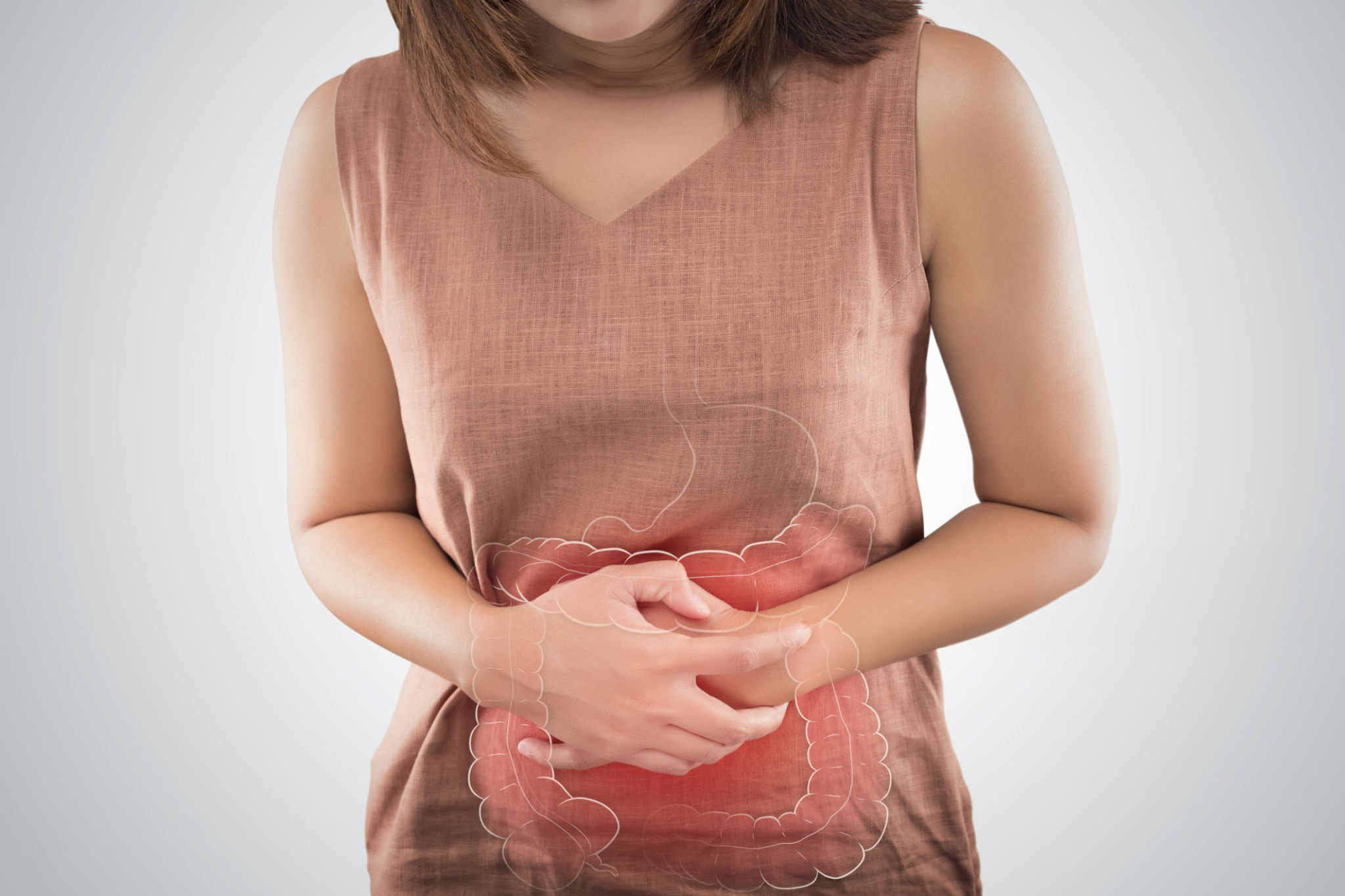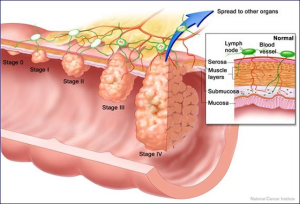written by Susan Cottrell, Physiotherapist and owner of The Body Refinery
In September I was diagnosed with Rectal cancer at the age of 45. It was a shock, to say the least, as I had no truly definitive symptoms other than some constipation while I was traveling in France, which I put down to eating amazing cheese and drinking rose. When I returned from France, my horse became very ill with salmonella, and I had gastro-like symptoms that I thought must have also been salmonella. A visit to the GP, followed by blood and stool tests, returned no unusual results, but I had a further attack of “gastro”, so my GP referred me to have a colonoscopy.
When I woke from the colonoscopy something seemed abnormal, as I wasn’t offered anything to eat or drink, and was told by the nurse that the gastroenterologist would be in to see me. I received the news from the gastroenterologist that he had located a tumour, but I took it in my stride, thinking “Surgery will fix that, and I’ll move on”. I was sent to have a CT and referred to a surgeon later that week. Prior to seeing the surgeon, I also had an MRI.

Unfortunately, the news from the surgeon was not good. The CT scan and MRI revealed that rectal cancer had metastasised to my uterus, pelvic lymph nodes, and my right lung. Surgery was not the preferred option straight away, and I was referred to an oncologist. Ten days after what I thought would be a routine colonoscopy, I started Chemotherapy and was eternally grateful to live in a time and country where such treatment could commence so quickly.
I am generally a very happy and positive person and have taken that attitude into my treatment; I am confident there is nothing but a positive outcome for me. As something I had limited knowledge about, I have since done some research on bowel and rectal cancer and was shocked by some of the statistics. Colorectal cancer in the under 50s is increasing, while the rate of bowel cancer in the over 50s is decreasing, thanks in part to the amazing free screening the Australian government provides for 50–74-year-olds every two years. With early-onset colorectal cancer on the rise, I want to increase awareness about it and promote further research into why it is increasing.
Like me, many early-onset colorectal cancer patients have little or no symptoms. The symptoms to look out for include:
- Blood in poo or rectal bleeding
- A recent, persistent change in bowel habit (e.g., diarrhea, constipation, or the feeling of incomplete emptying)
- A change in the shape or appearance of poo (e.g. narrower or including mucus)
- Abdominal pain or swelling
- Pain or a lump in the anus or rectum
- Unexplained anaemia causing tiredness, weakness, or weight loss.

It is a common misconception that bowel cancer is “an old person’s disease”. However, if you experience any of the symptoms above, it’s important to have it investigated early, and not to think that you are too young to have bowel cancer.
Although the majority of newly diagnosed bowel cancer cases occur in people aged 50 years and over, around 1 in 9 (11%) of Australians diagnosed with bowel cancer are under the age of 50. From October 2023, the National bowel cancer screening age was reduced to 45, which is wonderful news, however, it won’t answer the question of why we are seeing a rise in early-onset bowel cancer cases. As said by A/Prof Graham Newstead AM “While we recognise lowering the screening age is one step forward for people aged 40 and over, it doesn’t address the rise in early-onset bowel cancer, we still don’t know why younger people are getting bowel cancer”.
Since my diagnosis, many people have asked how they can help. I am exceptionally lucky that I am well supported by my amazing friends and family, so I would love your help by:
- Share my story and raise awareness of this disease which is a risk for those in their 40s or younger.
- using your free screening test when you receive it, and sign up to receive reminders every 2 years.
- purchasing a screening test for about $45 from pharmacies (if you aren’t yet eligible for the free test).
- talking to your family about any family history of the disease.
- talking to your GP about any concerns or symptoms you have.
- Donating to Bowel Cancer Australia or their Never Too Young program.
Stats:
https://www.bowelcanceraustralia.org/young-onset
Symptoms:
https://www.bowelcanceraustralia.org/symptoms
Screening:
https://www.bowelcanceraustralia.org/screening
https://www.bowelcanceraustralia.org/bowelscreen
https://www.health.gov.au/our-work/national-bowel-cancer-screening-program
https://www.cancer.org.au/bowelscreening
Screening Reminder:
https://www.cancer.org.au/bowelscreening/reminder
Donate:
https://www.bowelcanceraustralia.org/online-donation



